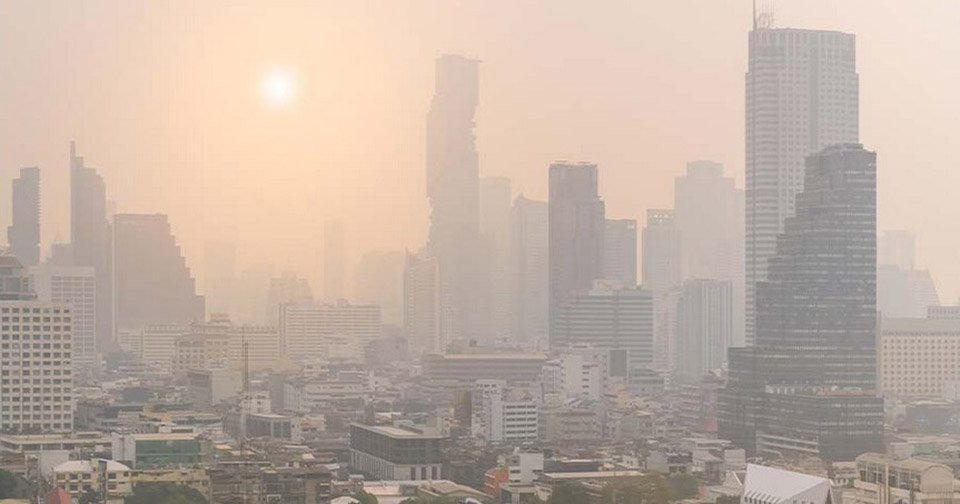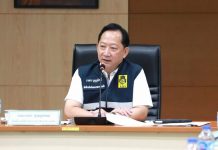
BANGKOK, Thailand – The Pollution Control Department (PCD) has issued a warning for Bangkok and its surrounding areas, predicting higher levels of PM 2.5 fine dust particles on October 24-25. This is due to a cold air mass from China spreading over northeastern and central Thailand, causing stagnant air and preventing the dispersal of pollutants.
On October 23, the PCD reported that overall air quality across most of Thailand remained within safe limits, except for Bangkok and its vicinity. PM 2.5 levels, recorded by pollution monitoring stations in collaboration with the Bangkok Metropolitan Administration (BMA), ranged from 12.0 to 38.2 micrograms per cubic meter. One area in Khlong San District exceeded the standard limit.
The PCD forecasts that the PM 2.5 situation in certain parts of Bangkok and its surrounding areas will worsen on October 24-25. The high-pressure system covering the northeastern and central regions of Thailand, combined with weak wind speeds, will lead to poor air circulation. However, rainfall expected on October 25-26 could help alleviate the situation.
Residents in areas with PM 2.5 levels exceeding the safety standard are advised to reduce outdoor activities or wear protective equipment. Those experiencing health issues should seek medical advice.
BMA Implements Dust Reduction Plan in 50 Districts Starting October 24
Bangkok spokesperson Ekwaranyu Amrapal stated that the PM 2.5 situation typically worsens between November and March each year due to stagnant and closed weather conditions, negatively impacting public health. To mitigate the severity of PM 2.5 pollution, the BMA has directed all district offices to begin implementing the city’s dust reduction plan starting from October 24, 2024.
The measures in the PM 2.5 action plan include:
- Strict inspections of vehicles emitting black smoke, in coordination with relevant agencies.
- Working with local police to manage traffic and enforce no-parking zones on main and secondary roads.
- Promoting engine maintenance, urging people to turn off engines when parked, and encouraging reduced use of private vehicles.
- Monitoring factories, concrete plants, and construction sites to ensure compliance with pollution standards.
- Strictly preventing the burning of waste or open fires of any kind.
- Urging temples, foundations, and religious sites to refrain from burning incense and paper, while ensuring proper procedures at cremation sites.
- Increasing the frequency of street cleaning, dust vacuuming, and washing of trees, leaves, and bus stops.
- Providing public information and advice on protecting health from PM 2.5, while encouraging residents to stay updated via the AIRBKK app and website. The public can also report pollution sources through the Traffy Fondue app, available 24 hours a day. (TNA)








